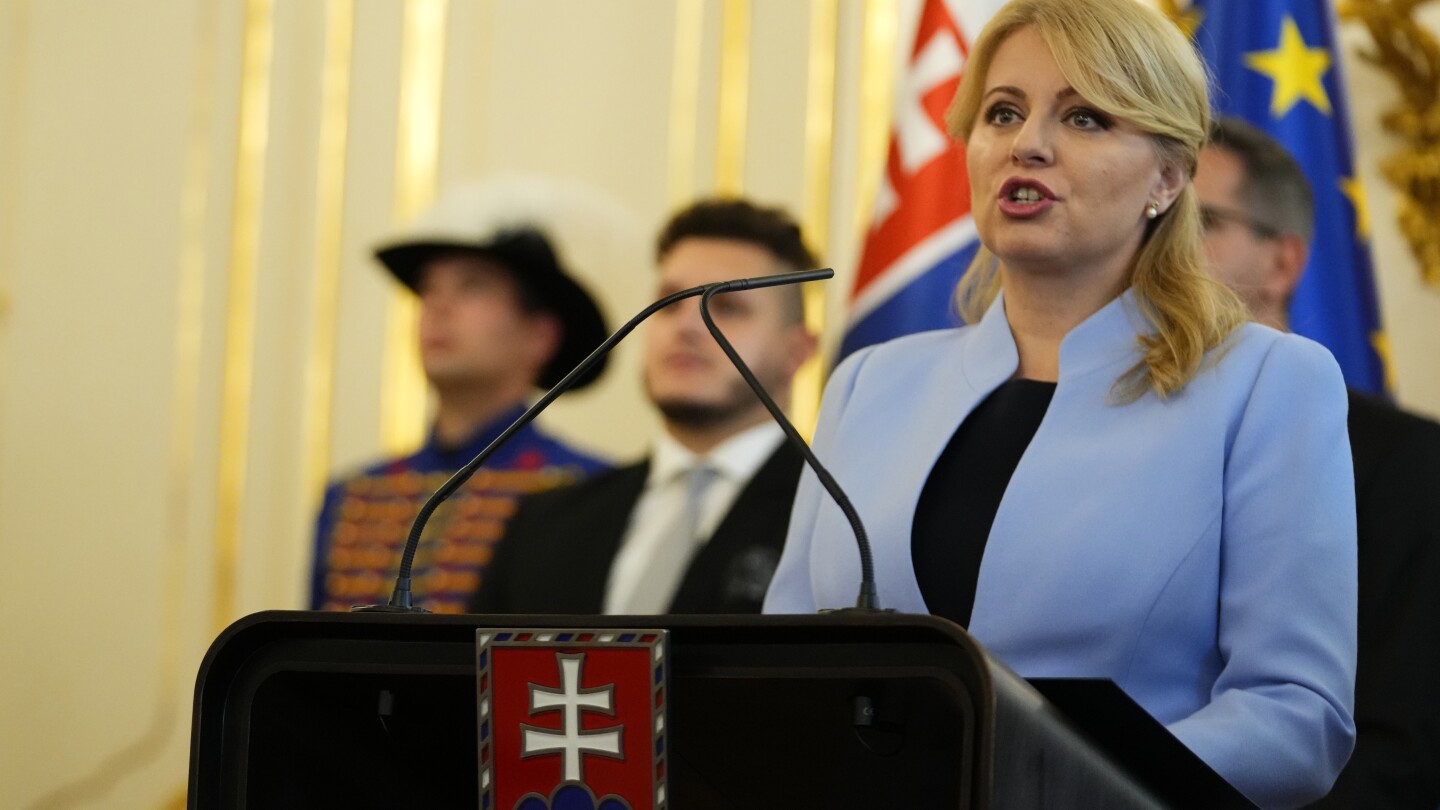Slovakia’s president said Friday she would seek to block the new government’s plan to return the prosecution of major crimes from a national office to regional ones, using either a veto or a constitutional challenge. But the governing coalition could likely override any veto.
The government of populist Prime Minister Robert Fico plans to change the penal code to abolish the special prosecutors office that handles serious crimes such as graft and organized crime by mid-January, and return those prosecutions to regional offices, which have not dealt with such crimes for 20 years.
President Zuzana Caputova said in a televised address Friday that she thinks the planned changes go against the rule of law, and noted that the European Commission also has expressed concerns that the measure is being rushed through.
The legislation approved by Fico’s government on Wednesday needs parliamentary and presidential approval. The three-party coalition has a majority in Parliament.
President Caputova could veto the change, but that likely would at most delay the legislation because the coalition can override her veto by a simple majority. It’s unclear how any constitutional challenge to the legislation would fare.
Fico returned to power for the fourth time after his scandal-tainted leftist party won Slovakia’s Sept. 30 parliamentary election on a pro-Russian and anti-American platform.
His critics worry that his return could lead Slovakia to abandon its pro-Western course and instead follow the direction of Hungary under Prime Minister Viktor Orbán.
Since Fico’s government came to power, some elite investigators and police officials who deal with top corruption cases have been dismissed or furloughed. The planned changes in the legal system also include a reduction in punishments for some kinds of corruption.
Under the previous government, which came to power in 2020 after campaigning on an anti-corruption ticket, dozens of senior officials, police officers, judges, prosecutors, politicians and businesspeople linked to Fico’s party have been charged and convicted of corruption and other crimes.
Several other cases have not been completed yet, and it remains unclear what will happen to them under the new legislation.
The opposition has planned to hold a protest rally in the capital on Tuesday.

